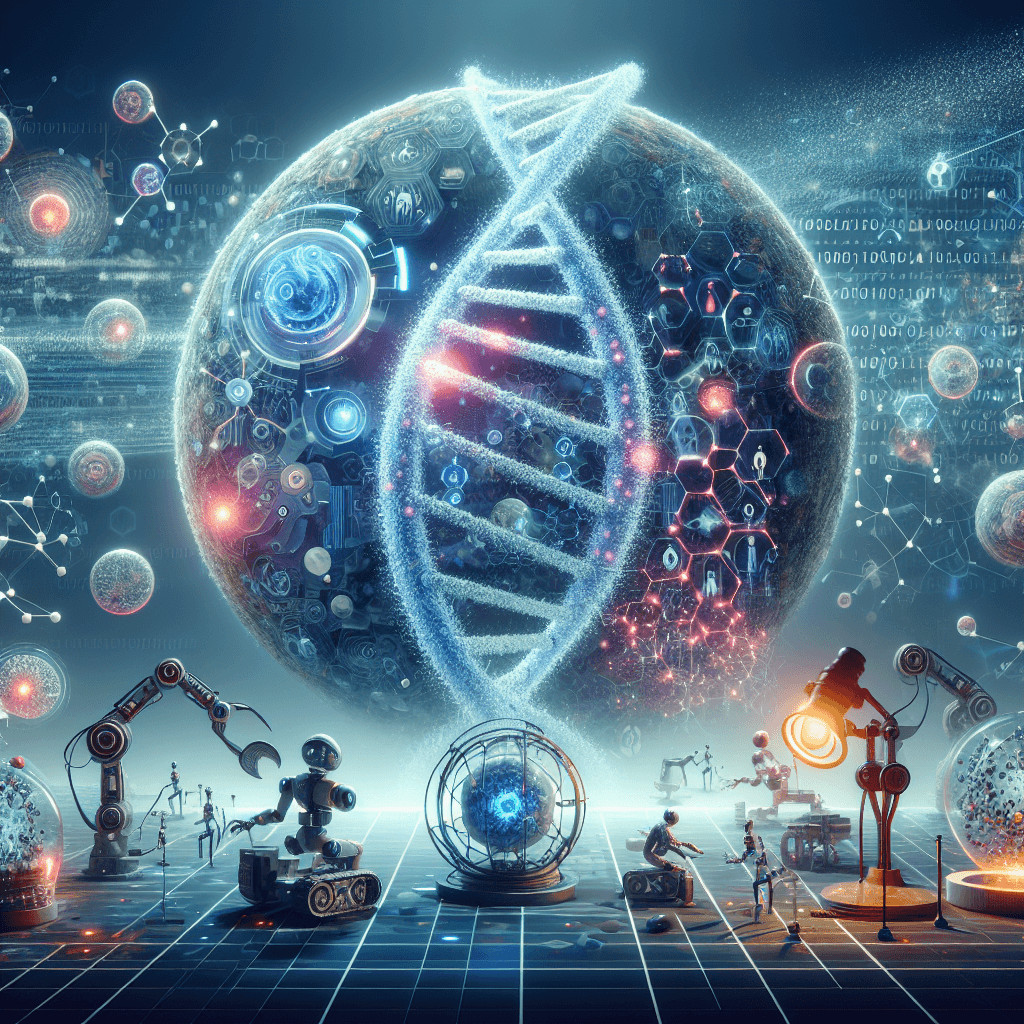Nature's Blueprint: How Data Science Guides Bio-Inspired Nanotechnology for Healing
From the intricate dance of proteins to the elegant structure of a spider's silk, nature offers a treasure trove of inspiration for technological advancement. Nowhere is this more evident than in the burgeoning field of bio-inspired nanotechnology. Scientists are increasingly looking to nature's blueprints to design and develop innovative materials and devices with applications in medicine, particularly in the realm of healing.
At the heart of this revolution lies data science, the engine driving the analysis and interpretation of the vast amounts of biological data at our fingertips. This data, encompassing everything from the genetic makeup of organisms to the intricate workings of their cells, provides the roadmap for mimicking nature's ingenuity at the nanoscale – one billionth of a meter.
Deciphering Nature's Code: The Role of Data Science
Nature's designs are often elegant in their simplicity yet remarkably effective. Take, for example, the gecko's foot, capable of adhering to virtually any surface. This remarkable ability stems from millions of microscopic hairs on their toes, allowing for strong van der Waals forces – weak intermolecular attractions that become significant at incredibly small distances.
Data science allows researchers to delve into the intricacies of these natural phenomena. By applying algorithms and machine learning techniques, scientists can analyze massive datasets to identify patterns and correlations that would otherwise remain hidden. This data-driven approach is crucial for understanding the structure, properties, and functions of biological systems at the molecular level.
Bio-Inspired Nanotechnology: Healing from Within
The insights gleaned from nature, decoded by data science, are paving the way for groundbreaking advancements in healing:
Targeted Drug Delivery: Imagine a microscopic capsule, inspired by the structure of a virus, capable of carrying drugs directly to diseased cells while leaving healthy tissue unharmed. This targeted approach, made possible by nanocarriers designed using bio-inspired principles, holds immense promise for improving drug efficacy and minimizing side effects in cancer treatment and other diseases.
Regenerative Medicine: The remarkable ability of some animals, like salamanders, to regenerate limbs has captivated scientists for centuries. Researchers are now looking to the intricate interplay of molecules and signaling pathways that govern this process to develop bio-inspired scaffolds and materials. These innovations could revolutionize the treatment of traumatic injuries, promoting tissue regeneration and restoring lost function.
Biosensors for Early Diagnosis: Early detection is often key to successful treatment. Bio-inspired nanosensors, modeled after the sensitive biological mechanisms found in nature, offer unprecedented possibilities for diagnosing diseases at their earliest stages. These sensors can detect minute traces of biomarkers in bodily fluids, enabling timely interventions and potentially life-saving outcomes.
The Future of Healing: A Data-Driven Symphony
The marriage of data science and bio-inspired nanotechnology is still in its infancy, yet the possibilities seem limitless. As our understanding of the natural world deepens and our computational tools become more sophisticated, we can expect to see an explosion of innovations in healthcare:
Personalized Medicine: Imagine a future where treatments are tailored not just to your specific disease but to your unique genetic makeup. Data science, combined with bio-inspired nanotechnology, could make this vision a reality, ushering in an era of personalized medicine that optimizes patient outcomes.
Biocompatible Implants: One of the biggest challenges in medicine is the body's tendency to reject foreign materials. Bio-inspired nanotechnology is being employed to develop implants and devices that mimic the properties of natural tissues, reducing the risk of rejection and improving biocompatibility.
Sustainable Solutions: Nature is inherently sustainable, and researchers are increasingly drawing inspiration from biological processes to develop eco-friendly approaches to nanomaterial synthesis and fabrication. This shift towards green nanotechnology ensures that the advancements in healing come at minimal cost to the environment.
Embrace the Future of Learning
The convergence of data science, nanotechnology, and biology is reshaping the landscape of healthcare. To stay ahead of the curve and be a part of this exciting revolution, continuous learning is essential.
Explore the diverse range of courses and resources available on 01TEK and embark on a journey of discovery into the world of cutting-edge technologies shaping the future of healing.
Not a single person whose name is worth remembering lived a life of ease.
Ryan P. Allis



